Irish customers of Amazon look set to get many of their orders delivered even faster after the web retail giant moved closer to opening its first Irish fulfilment centre at a business park in Baldonnell, west of Dublin, according to a report from Bloomberg.
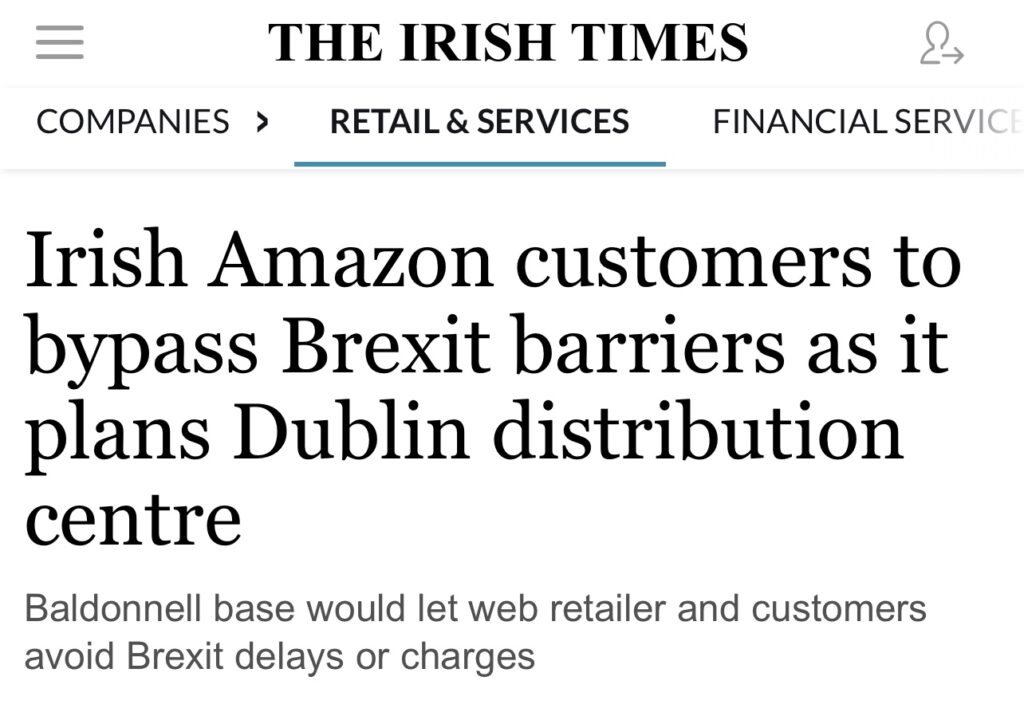
The newswire reported on Thursday that Amazon is on the verge of taking a 650,000sq ft unit at the Mountpark logistics centre in Baldonnell. It already operates a delivery warehouse in Rathcoole for Amazon Prime customers, which opened last year. But the Baldonnell deal would be its first proper order fulfilment centre where products are picked and packaged by Amazon staff.
Currently, much of Amazon’s orders for Irish customers are fulfilled in the UK before being shipped to Ireland where they are delivered by An Post. Amazon Prime deliveries from the Rathcoole warehouse, meanwhile, are delivered on behalf of the web giant by Zeus Logistics.
The Mountpark/Baldonnell deal, which property industry observers have said is the largest deal of its type in the Irish market, would allow Amazon to bypass the UK and avoid any delays or extra charges due to Brexit trading arrangements.
Source: IrsishTimes
Today the new post-Brexit UK Border Operational Model kicks in after a 11 months delay. Border Management will be handled according to the legislation and formal customs procedures.
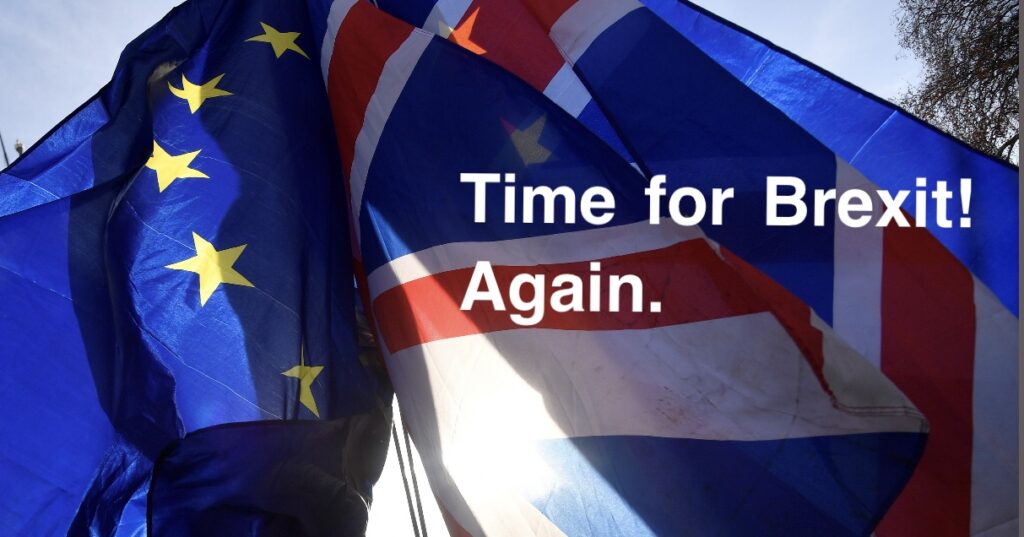
UK will now apply similar controls as the EU has done from day one of Brexit.
This means that UK importers will have to:
a) complete and clear customs declarations in ‘real time’ when importing; so no 175 day deferral period, and
b) for animal products register them on IPAFFs, the UK food import register.
Some controls at the UK border are still phased in, (see the pictures below).
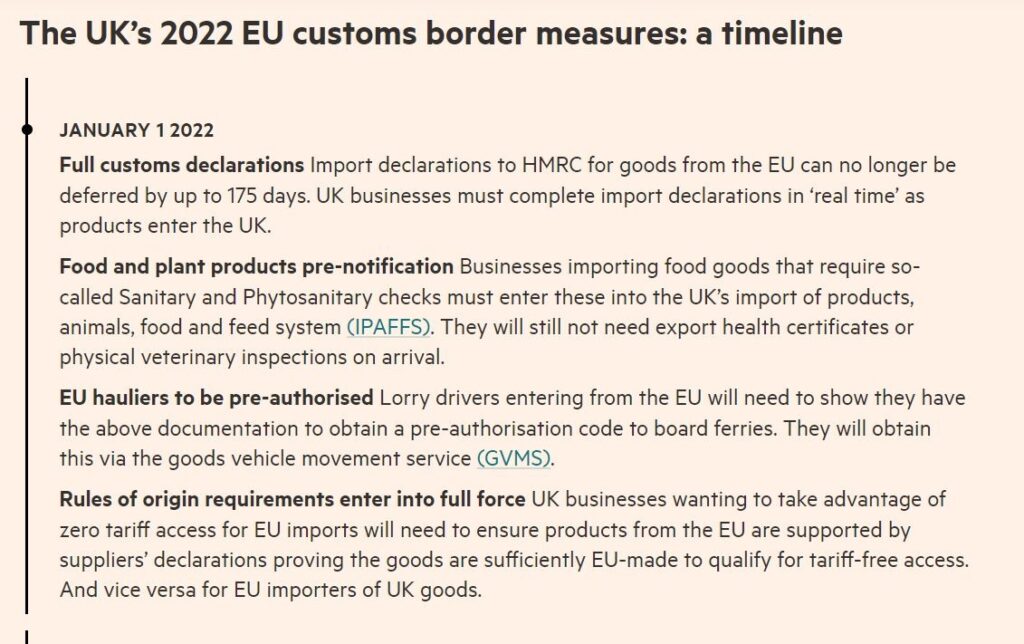
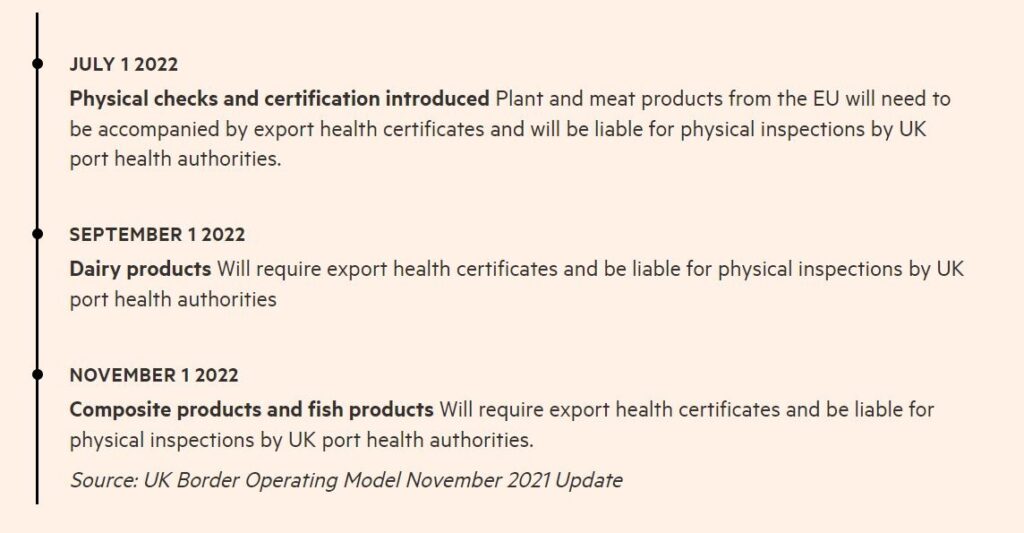
Another important change is the application of the ’Rules of the Origin’ principles for trade between EU and UK (just like trade with ROW).
During 2021 UK businesses had to comply with ‘rules of origin’ in line with the TCA (FTA) signed between the two parties last Christmas, but could self declare their goods were ‘originating’ and so could enter tariff-free, without having the underlying documents actually to hand, since it is often difficult for suppliers to prove it on complex products.
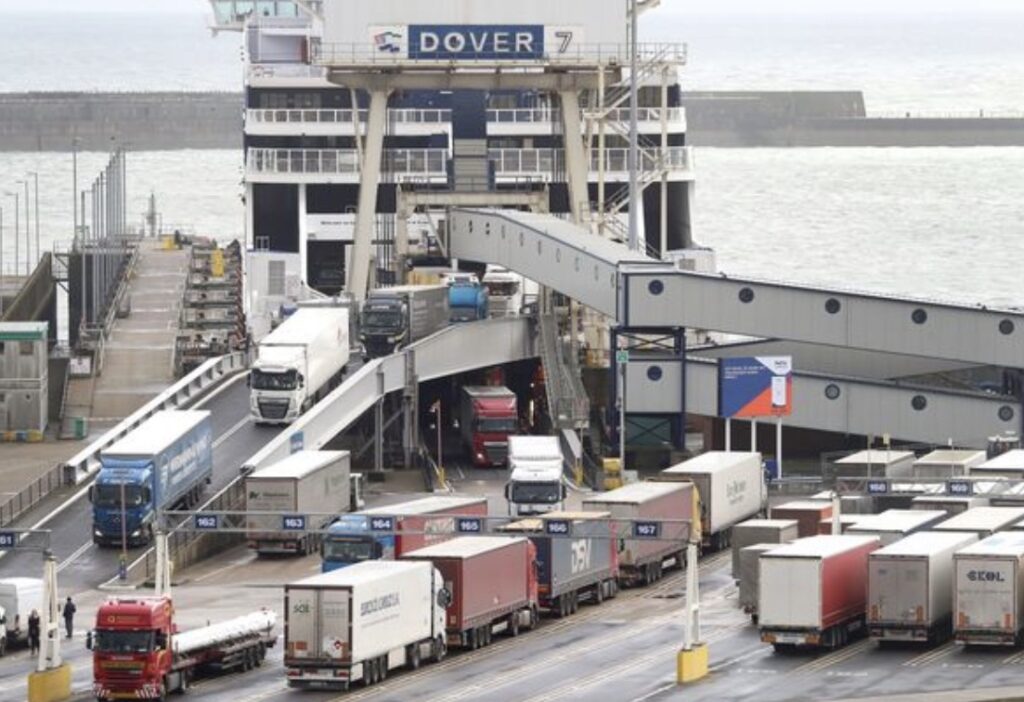
From January 1st UK and EU exporters will still self-declare their goods qualify, but they will need to have the supporting documents when importing. Failure to be able to demonstrate if goods qualify, when challenged by customs authorities, means that tariffs on goods will have to be paid.
Media has stated that many UK companies are not prepared for these changes. It is time to find out of they are.
Source: FT







You must be logged in to post a comment.